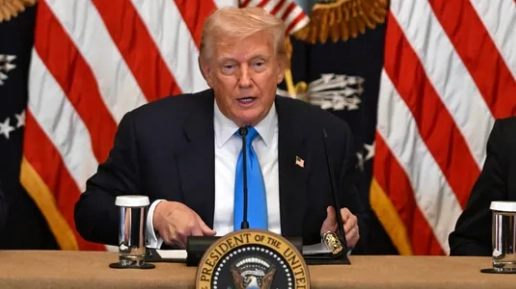 President Donald Trump on Thursday signed an executive order imposing reciprocal tariffs between 10% and 41% on imports to the United States from several countries and territories.
President Donald Trump on Thursday signed an executive order imposing reciprocal tariffs between 10% and 41% on imports to the United States from several countries and territories.
The new rates include a 25% tariff on exports from India and 30% on goods coming from South Africa.
The order sets out that new tariffs targeting a broad range of US trading partners will take effect in seven days – marking the next phase of Trump’s trade strategy, which is expected to challenge the global economy and strain international alliances.
Issued shortly after 7 pm on Thursday, the order followed several days of intense tariff-related developments, as the White House struck deals with various countries and trade blocs ahead of the president’s self-imposed August 1 deadline.
It outlined tariff rates for 68 nations and the 27-member European Union, with a standard 10% tariff to be applied to any countries not specifically named in the document. A senior administration official stated that the rates were determined based on each country's trade imbalance with the US and its broader regional economic characteristics.
Trump signed a separate order raising tariffs on Canadian imports from 25% to 35%, effective August 1, specifically targeting goods linked to fentanyl-related trade. The move came with a sharp rebuke, as Trump accused Canada of having “failed to cooperate” in curbing the flow of fentanyl into the US.
The increase does not apply to goods covered by the US-Mexico-Canada free trade agreement, which he negotiated during his first term.
This new rate marks an increase from the 25% tariffs he had introduced in early March under emergency powers.
“Canada has failed to cooperate in curbing the ongoing flood of fentanyl and other illicit drugs, and it has retaliated against the United States” for Trump’s earlier tariffs, the White House said in a fact sheet published on Thursday evening.
However, the US government maintained an exemption for products traded under the framework of the US-Mexico-Canada Agreement. American car manufacturers and other firms with interconnected North American supply chains had lobbied for this carve-out, which has enabled US importers to continue receiving most goods from Mexico and Canada without tariffs.
As a result of this exemption, the average tariff applied to Canadian imports was approximately 5%, based on estimates released by the Bank of Canada on July 30.
That figure is now expected to rise slightly.